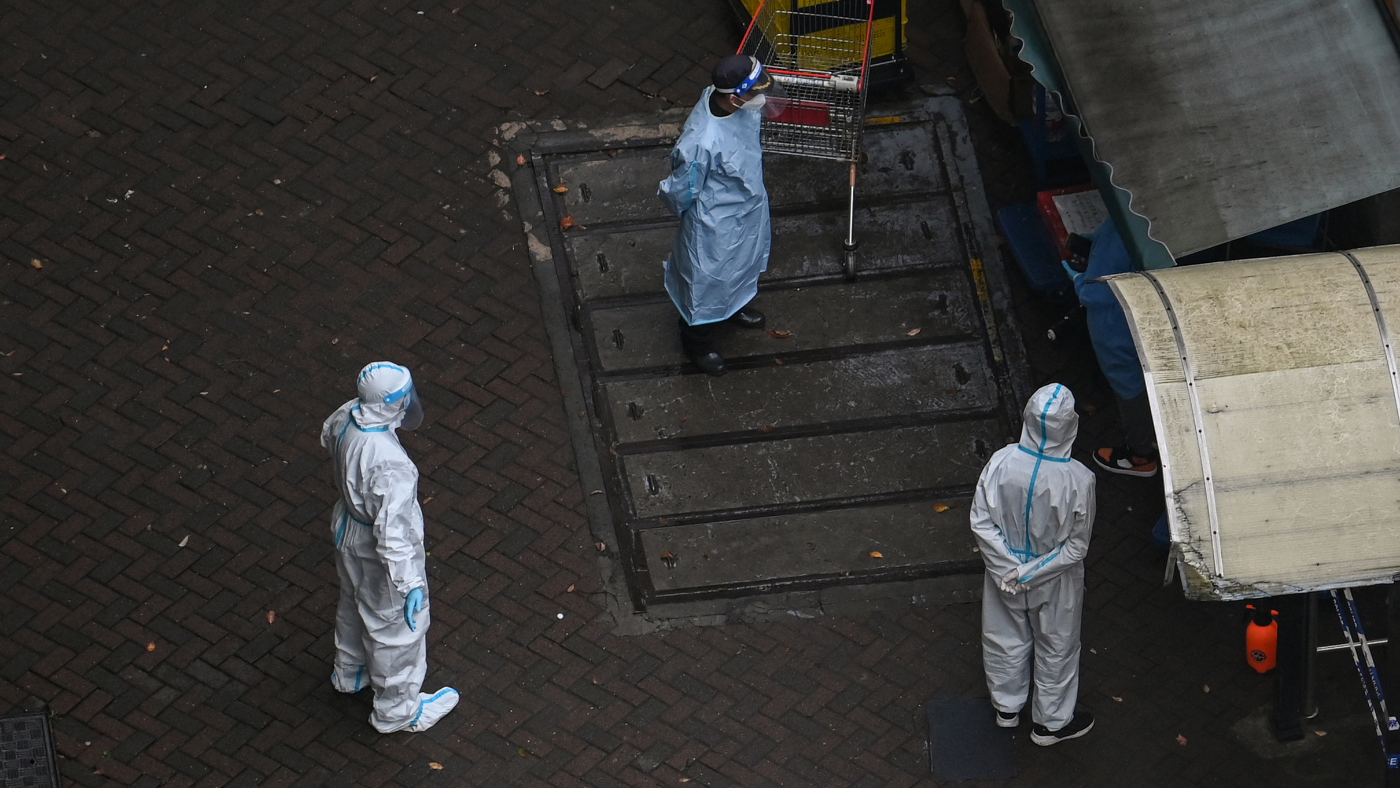Why Covid is threatening the world’s supply of iPhones
Chinese authorities working with key companies to resume production

A free daily email with the biggest news stories of the day – and the best features from TheWeek.com
You are now subscribed
Your newsletter sign-up was successful
The return of stringent lockdown measures in China’s economic hubs has meant many workers who produce technology used across the globe have been forced to stay at home.
Production lines in factories that “make half the world’s iPhones” have stalled in recent weeks, said The Times.
In a “blow to Apple”, Taiwanese iPhone producer Pegatron halted its operations in Shanghai and Kunshan last week, said The Guardian. MacBook laptops producer Quanta Computer has also temporarily stopped production.
The Week
Escape your echo chamber. Get the facts behind the news, plus analysis from multiple perspectives.

Sign up for The Week's Free Newsletters
From our morning news briefing to a weekly Good News Newsletter, get the best of The Week delivered directly to your inbox.
From our morning news briefing to a weekly Good News Newsletter, get the best of The Week delivered directly to your inbox.
The Guardian added that Foxconn, the world’s largest assembler of iPhones, also “halted operations in the Chinese tech hub of Shenzhen” last month but the company said it has since “resumed fundamental operations”.
It insisted its factory, which employs up to 120,000 people, is operating normally despite traffic controls introduced at the weekend preventing vehicles from entering or leaving the city of Zhengzhou.
The company said its factory is “co-operating with government controls”, The Times continued, with employees able to get around with an authorisation document, a valid health code and a negative result from a Covid test taken within 48 hours.
Experts are warning that the measures will have drastic effects on the tech industry. Foxconn’s chair, Liu Young-way, told investors in March that Covid was causing “very big uncertainty”, reported the Financial Times. “2022 is a very challenging year,” he said.
A free daily email with the biggest news stories of the day – and the best features from TheWeek.com
Some firms have tried to limit employees’ exposure to Covid since cases began to rise last month. “Some staff have been living in their workplaces as businesses struggle to operate,” reported The Guardian. The German firm Bosch set up “a bubble-like environment that keeps workers on factory campuses”, The Wall Street Journal said.
Confirmed Covid cases in China exceeded 50,000 last week, according to global data tracking, the majority of which were in Shanghai. Currently people testing positive for Covid must isolate “mostly in mass dormitory-style warehouses, or in hospitals if treatment is required”, said The Guardian.
Local authorities have been instructed to work with firms to minimise disruption to manufacturing operations. Shanghai’s Commission of Economy and Information said last Friday that it had selected 666 companies that could resume production, including Tesla and Volkswagen.
Assurances from firms have done little to reassure supply chain experts, who fear the measures are “threatening a global tech crunch”, said The Times. Huawei’s head of consumer and auto division warned in a WeChat post last week that the tech industry may experience “massive losses” as a result of the country’s zero-Covid policy, The Guardian reported.
Many producers in Shanghai are “struggling to keep up production because they can’t get deliveries” of essential parts used in smartphones, The Wall Street Journal reported. Some truck drivers “are avoiding transporting goods through Shanghai altogether, fearful of ending up in quarantine”.
Supply chain expert Olaf Schatteman told the Financial Times last month that “China is digging itself into a deep hole with its zero Covid policy.
“As the restrictions are hurting suppliers and logistics operations, companies are moving beyond containing the current crisis and towards diversifying production locations, undermining China as the supply chain hub of the world,” he said.
The Covid regulations “are taking a toll on the world’s No.2 economy during a key year for President Xi Jinping, who is expected to secure a third leadership term in the autumn”, said Reuters.